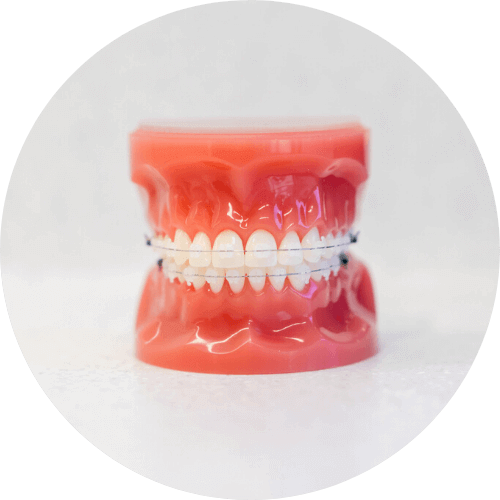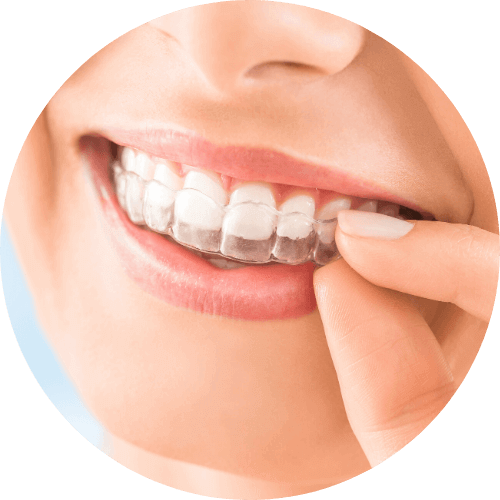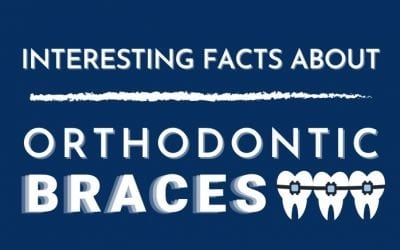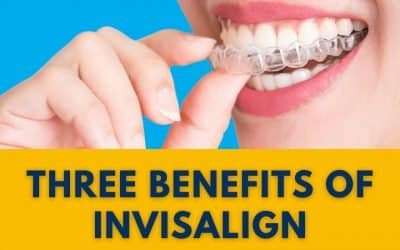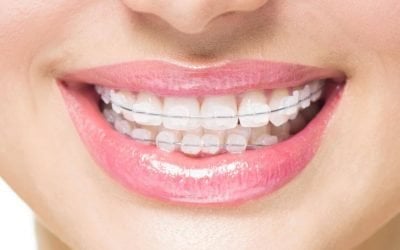Can I Eat Candy With Braces?
If you have braces and a sugar craving comes along, you might be tempted to sink your teeth into an oozy, gooey candy bar. But can you eat candy with braces? If you’ve had to ask yourself this very question, the answer probably isn’t too surprising.
There are tons of foods you can and can’t eat with braces. Unfortunately, one of those foods that you can’t eat is candy. Candy is specifically not recommended for a number of reasons. Understanding why and how eating candy when you have braces will affect your chances of completing a successful orthodontic treatment—which ultimately affects the health of your teeth and gums in the long run—will hopefully help diminish your cravings for sweet treats while you have braces, and hopefully beyond your orthodontic treatment as well.

It’s All About the Sugar
Let’s take a look at the obvious: candy is bad for you, whether you have braces or not. It’s loaded with sugar, which is a carbohydrate. Carbohydrates are what fuel the bacteria on your teeth to produce acids that cause tooth decay to form. For a tooth without braces, candy is a huge threat. Add in the brackets and bands that are necessary during orthodontic treatment and your teeth will most certainly be facing the nightmarish experience of tooth decay.
When you take the overall amount of sugar you’re consuming into account, as well as the difficulty of reaching every surface of the tooth and around the bracket and band attachments with your toothbrush and dental floss, simply avoiding candy in the first place outweighs giving into temptation.
Sticky, Hard, Ooey Gooey—It’s All the Same
Candy comes in a number of different forms, but it’s all the same when you consider eating candy with braces. From hard, mint-like candies, to sticky toffee and gooey chocolate bars, candy does a number on your braces, regardless of its form.
When you bite into a hard or sticky piece of candy without braces, your tooth is stressed by the force it takes to break down and chew the piece of candy. With braces on your teeth, biting into a hard piece of candy will put additional force onto the bracket or band attachment, along with the tooth.
More often than not, the bracket or band will succumb to the force it takes to eat the candy, and they will break or pop-off. When a bracket or band becomes loose, your orthodontic treatment comes to a screeching halt until you are able to see your orthodontist and have the problem repaired. For most patients, a loose band or bracket will set their treatment back one to two months.
Ouch! That Hurts!
Besides cavities, all of that hard, sticky, gooey candy can hurt your teeth in other ways. Aside from the force and effort, it takes to eat really sticky or hard candy that can ultimately damage your braces, imagine how your teeth feel after an archwire adjustment.
Your teeth are usually very sensitive and ache while you have braces on your teeth, especially after an archwire adjustment. Now picture yourself trying to bite into a piece of hard candy. Your teeth will scream in horror because they are so sensitive to pressure.
Candy Alternatives
Enjoying a piece of candy is not worth the pain and anguish that comes with these hard-to-resist treats, but there are alternatives to candy that can help to satisfy your sweet tooth while being friendly to your teeth.
It is generally okay to enjoy something sweet from time to time because let’s face it, sweets are a part of life. If you find yourself craving something sweet, put down the candy and consider baking or preparing something sweet from a braces-friendly recipe book.
Once your sweet tooth has finally been put to rest, always ensure that you brush and floss immediately after consuming sugar.
To read the original article, click here.
DISCLAIMER:
The content has been made available for informational and educational purposes only. Central Coast Orthodontics does not make any representation or warranties with respect to the accuracy, applicability, fitness, or completeness of the content.
The content is not intended to be a substitute for professional personal diagnosis or treatment. Always seek the advice of your dentist or another qualified health provider with any questions you may have regarding a dental or medical condition. Never disregard professional advice or delay seeking it because of something you have read or seen on the Site.
Learn More About
Related Articles
Interesting Facts About Orthodontic Braces
Wanting to get orthodontic braces but feeling unsure because you don't have knowledge about its...
Three Benefits of Invisalign
Did you know that aside from being an option for straightening your teeth, there are also benefits...
Metal Braces: Does This Traditional Dental Technology Have a Future?
Of all the medical professions, dentistry has always generated the most fear and continues to;...
Ceramic Braces: Ancient Origins, Bright Future?
What exactly is ceramic? Essential to daily life and classified as inorganic and non-metallic...

